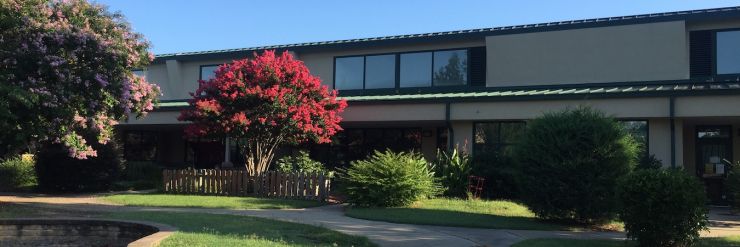“The reform of the secondary school may not solve all the problems of our times, but it is certainly a necessary step, and a practical, though limited, contribution to an urgently needed reconstruction of society.” - Dr. Maria Montessori
In the Montessori secondary classroom, our goal is to help students find their place in society. Our work is to support each learner’s unique needs, interests, and talents as they transition to adulthood. We do this with a holistic approach to education that includes:
- Meaningful, authentic work
- An emphasis on service learning
- Creating a classroom environment that meets the developmental needs of adolescents
- Providing challenges that promote self-discipline and reason
- Giving opportunities for both independent and collaborative work
The ultimate goal is to inspire responsible, engaged citizens of the world who will use the academic, social, and emotional skills they develop at Sterling to become peace-builders and lifelong learners. To that end, our teachers guide students as they explore their unique gifts and interests and how they might utilize them to contribute to their community.
“The adolescent must never be treated as a child, for that is a stage of life that he has surpassed. It is better to treat an adolescent as if he had greater value than he actually shows than as if he had less and let him feel that his merits and self-respect are disregarded.” - Dr. Maria Montessori
The Montessori Middle School program is designed to integrate the needs and the characteristics of students in the third plane of development. These include:
- Growth - physically and intellectually
- Social - need for peer interaction
- Independence - need to assert themselves as own person
- Social Justice Minded - interest in how to make positive impact on the world
- Rebellion - desire to test boundaries and own abilities
In order to meet the needs of adolescents, our program provides opportunities for:
- Independence
- Community
- Adaptability
- Self-expression
- Self-reflection
- Choice and Voice
- Context
- Feedback
- Respect
- Love
Click here for more information on the third plane of development.
“The chief symptom of adolescence is a state of expectation, a tendency towards creative work and a need for the strengthening of self-confidence." - Dr. Maria Montessori
Maria Montessori developed the pedagogy of Cosmic Education - that everything in our universe is interdependent and the past, present, and future of our history is interconnected. All bodies of study branch out from this cosmic education plan: life science, earth science, physical science, geography, history, math, and the arts. Students at this age have a deep desire to hone their unique abilities in order to gain confidence and contribute to social change. Montessori is a unique individualized educational approach that nurtures the student's intrinsic desire to learn and focuses on the whole child—their cognitive, social, emotional, and physical development.
"But, above all it is the education of adolescents that is important, because adolescence is the time when the child enters on the state of (adulthood) and becomes a member of society." - Dr. Maria Montessori
- Mixed-Aged Classroom
- 7th and 8th grade in the same classroom
- Student-Centered Program
- Lessons given in variety of ways: whole class, small group, individual
- Relationship-driven classroom
- Environment of mutual respect
- Integrated Curriculum
- Teachers present cross-disciplinary lessons that meet NC Public School Standards in Math/Science and Humanities (ELA/History)
- A rigorous academic experience that challenges all learners
- Work Cycle
- 2-3 hour uninterrupted work times that encourage deep work “flow”
- Advisory Program
- Small group advisories allow for community building and personal accountability
- Specials
- PE, Art, Spanish, Chorus, and Band
- Technology
- 1:1 laptop
- Lessons in safe use of technology
- Occupations
- Small group, real-life skill building (ie. gardening, podcasting, yearbook)
- Peace Education
- Positive Discipline and Restorative Justice approach to discipline and conflict resolution
- Social/Emotional learning
- Anti-bias, anti-racist framework
- Respect and responsibility lessons
- Community Service Opportunities
- Experience serving the Middle School community, Sterling school community, and wider community
Each day, our Middle Schoolers follow a typical schedule
- 8:45 - 12:00 Morning work cycle
- 12:00 - 1:00 Lunch/Recess
- 1:00 - 3:45 Specials/Work Cycle

